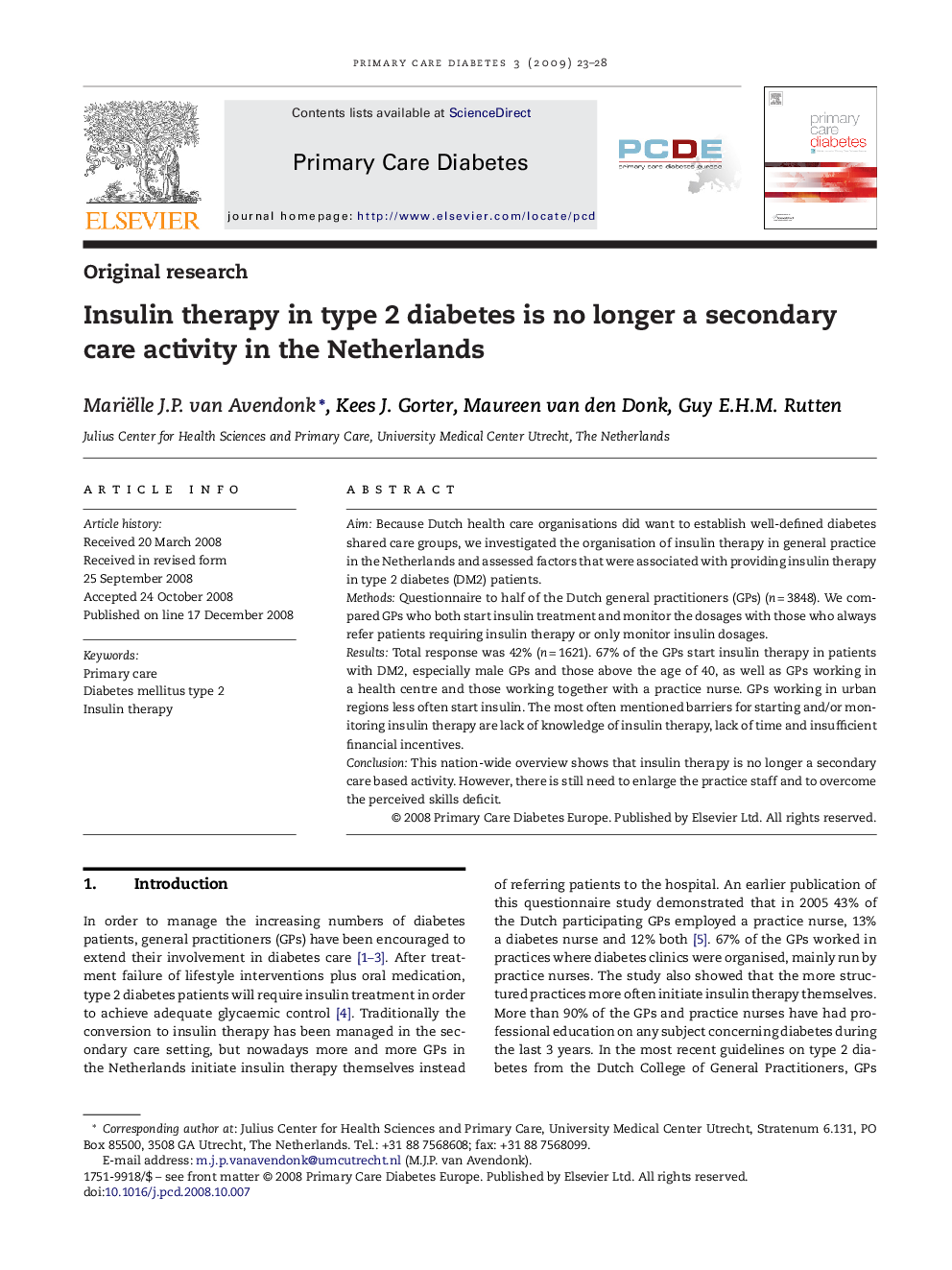| Article ID | Journal | Published Year | Pages | File Type |
|---|---|---|---|---|
| 2679256 | Primary Care Diabetes | 2009 | 6 Pages |
AimBecause Dutch health care organisations did want to establish well-defined diabetes shared care groups, we investigated the organisation of insulin therapy in general practice in the Netherlands and assessed factors that were associated with providing insulin therapy in type 2 diabetes (DM2) patients.MethodsQuestionnaire to half of the Dutch general practitioners (GPs) (n = 3848). We compared GPs who both start insulin treatment and monitor the dosages with those who always refer patients requiring insulin therapy or only monitor insulin dosages.ResultsTotal response was 42% (n = 1621). 67% of the GPs start insulin therapy in patients with DM2, especially male GPs and those above the age of 40, as well as GPs working in a health centre and those working together with a practice nurse. GPs working in urban regions less often start insulin. The most often mentioned barriers for starting and/or monitoring insulin therapy are lack of knowledge of insulin therapy, lack of time and insufficient financial incentives.ConclusionThis nation-wide overview shows that insulin therapy is no longer a secondary care based activity. However, there is still need to enlarge the practice staff and to overcome the perceived skills deficit.
